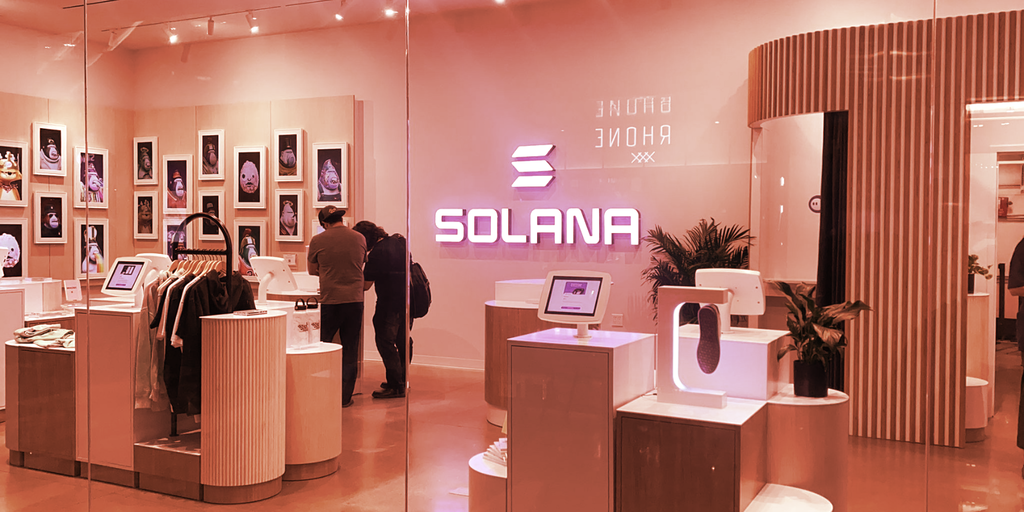A Solana-themed store is set to open its doors in New York City. Called Solana Spaces, the new store is located in Hudson Yards and is being launched in collaboration with the Solana Foundation, the organization behind the eponymous blockchain network.
Crypto companies and Web3 brands have been steadily making inroads into mainstream culture, with celebrities like Tom Brady, Steve Aoki, Snoop Dogg, and Elon Musk getting in on the action.
Brands like the Ethereum NFT collection Bored Ape Yacht Club have even branched out into “IRL” products and businesses, including a Bored Ape-themed restaurant in Los Angeles. Solana, which recently announced plans to create and launch its own Android smartphone, also appears to see value in going the brick-and-mortar route.
“Inside [the store], you’ll learn how Solana works, what Web3 is. We’ll set you up with a wallet and your first NFTs, and guide you through your first on-chain transactions,” the Solana Spaces Twitter account tweeted earlier this month. It added that it designed the space to be a “cultural center” and “embassy” for Solana.
Beyond NFT and Phantom wallet tutorials, the space will also provide consumers with an interactive art installation—and plenty of Solana-branded merch for sale, including a limited run of Blanksoles sneakers.
Before its grand opening, Solana Spaces opened up its doors this past weekend for a select group of 30 visitors to preview the store.
Even though the store isn’t officially open yet, it’s already gaining considerable buzz on social media, with passersby taking notice and sharing photos of the store via Twitter. It even caught the attention of Genie founder and Uniswap VP of Product Scott Lewis.
Solana, whose native cryptocurrency SOL is currently the ninth largest cryptocurrency by market cap, has within the last year become a popular alternative to the more costly Ethereum blockchain to trade NFTs—unique blockchain tokens that signify ownership—and use decentralized apps.
The network still lags way behind Ethereum in every meaningful metric, though unconventionally conventional methods of getting the word out like a physical store just might help close the gap a little more.

